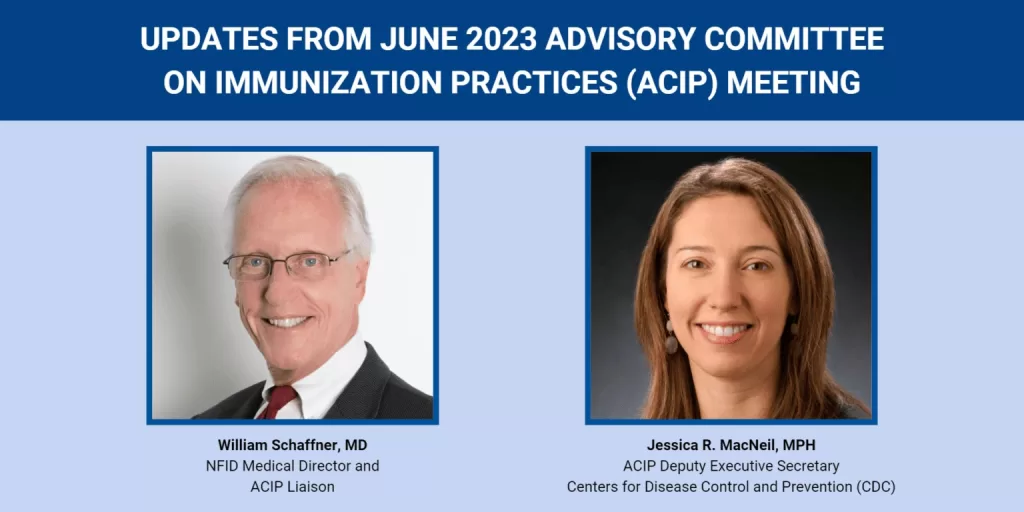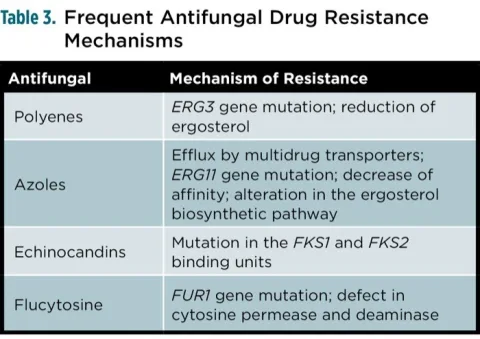The recent ACIP meeting has ignited a firestorm of controversy, as public health experts express concern over the committee’s new direction regarding vaccine recommendations. This two-day event, held by the Advisory Committee on Immunization Practices, culminated in a contentious vote to advise flu vaccines without thimerosal, a preservative that has long been criticized by vaccine skeptics. Stakeholders in vaccine safety are worried that such recommendations—rooted in implications rather than evidence—will erode public trust in vital immunization policies. The repercussions of this meeting extend beyond just the specifics of thimerosal; they pose a broader threat to public health initiatives amidst an era increasingly rife with misinformation. As vaccine stability hangs in the balance, the implications of the ACIP meeting could significantly impact both immunization efforts and community health.
The recent gathering of the CDC’s immunization advisory board, known as ACIP, has stirred significant debate within health circles. This meeting brought to the forefront discussions about vaccine protocols and safety, particularly relating to common ingredients like thimerosal, which has faced scrutiny from critics. Many in the medical community fear that the decisions made during such a session could unfavorably shift public opinion on vaccines, jeopardizing essential immunization strategies. As whispers of politicization become louder, the integrity of the advisory process is being questioned, raising alarms among pediatricians and public health advocates alike. Ultimately, this controversy reflects broader societal tensions surrounding vaccine efficacy and accessibility, intertwining with ongoing discussions on public health policy.
The Importance of ACIP Meetings in Vaccine Policy
The Advisory Committee on Immunization Practices (ACIP) meetings play a crucial role in shaping vaccine policies and practices in the United States. These sessions bring together public health experts, researchers, and stakeholders to discuss the latest scientific evidence regarding vaccine safety and effectiveness. The recommendations made during these meetings directly influence immunization policies across the nation, impacting public health initiatives and ultimately, the well-being of the population.
Moreover, the decisions reached in ACIP meetings hold significant weight in the public’s perception of vaccines. When credible experts endorse specific vaccines or recommend changes based on scientific analysis, it fosters trust in vaccination programs. Such trust is essential, especially given the rising concerns about vaccine misinformation. Understanding the importance of ACIP’s role can help clarify the complexities surrounding immunization policy and highlight the need for transparency in their decision-making processes.
Controversial Votes Reviving Vaccine Misinformation
The recent ACIP meeting raised alarm among public health advocates, particularly a controversial vote on recommending flu vaccines without the preservative thimerosal. This decision has been criticized as politically motivated rather than grounded in sound science. Critics argue that the misinformation surrounding thimerosal lacks a basis in the scientific community, which has consistently found no correlation between thimerosal and adverse health effects like autism. Such actions from ACIP create potential backlashes in public confidence in vaccines.
Furthermore, the contentious atmosphere during these meetings, accentuated by the newly appointed members with limited expertise in vaccine science, raises concerns about the credibility of future recommendations. Advocates worry that this could revive anti-vaccine sentiments and further detract from established information about vaccine safety. The potential fallout from such decisions emphasizes the need for the ACIP to adhere strictly to scientific evidence to maintain the trust of the medical community and the general public.
Public Health Concerns Amid ACIP Transitions
As the ACIP navigates through restructuring and controversial votes, public health experts express deep concerns about the implications on immunization strategies across the nation. The changes could compromise the integrity of vaccine recommendations, which have historically been rooted in comprehensive scientific evaluations. Experts fear that deviations from established protocols might contribute to declining vaccination rates, leading to increased prevalence of vaccine-preventable diseases.
Moreover, altering vaccine guidelines without adequate scientific backing could set off a chain reaction of vaccine hesitancy. Public perception is especially susceptible to shifts in health policy, and if individuals lose faith in the regulatory bodies that endorse vaccinations, the consequences could be severe. Vaccination is not just a personal health decision; it impacts community-wide immunity, which is essential for protecting vulnerable populations.
Public Reaction to Recent ACIP Decisions
Responses to the recent ACIP meeting have sparked widespread discussion within the medical community and beyond. Public health advocates and medical organizations, like the American Academy of Pediatrics, have raised their voices against the recent recommendation to limit thimerosal in vaccines, arguing that it could undermine public confidence in vaccination programs. This reaction underscores the delicate balance between scientific evidence and public perception, and how easily misinformation can sway opinions regarding vaccine safety.
Additionally, many healthcare professionals are voicing concern that such changes could further polarize public and professional consensus on immunization. The critique surrounding ACIP’s recent decisions reflects a growing unease among practitioners who see immunity against vaccine-preventable diseases in jeopardy if the public loses confidence in vaccination schedules. Trust in scientific guidelines is paramount, and the decisions made at these meetings must reflect thorough research and an unwavering commitment to public health.
The Role of Thimerosal in Vaccine Discourse
Thimerosal, a common preservative used in some vaccines, has become a focal point in ongoing debates about vaccine safety. Despite extensive research, the ingredient has been subject to controversy, particularly among anti-vaccine proponents who link it to various health issues without substantive evidence. The recent ACIP decision to recommend avoiding thimerosal in vaccines indicates a troubling shift towards favoritism of public perception over scientifically validated information.
This focal point reflects a broader challenge in public health communication where fact-based science often meets the emotional surge of public opinion. The removal of thimerosal from vaccines wasn’t due to documented harm, but rather a response to public concern, showcasing how fear and misinformation can lead to changes in science-based immunization policy. Addressing the myths surrounding thimerosal with thorough education and data transparency may help restore confidence in vaccines.
The ACIP’s Legacy and Future Outlook
For over six decades, the ACIP has been regarded as the authority in immunization practices. However, the recent shifts in committee composition and the controversial decisions made in meetings have catalyzed discussions about its future impact on public health policy. Experts warn that should the committee continue on this path, it might risk tarnishing its legacy of science-driven public health recommendations.
The growing skepticism directed towards the ACIP’s decisions signifies an urgent need for a revitalized commitment to evidence-based policies in immunization. Future strategies must account for the importance of fostering trust and transparency among stakeholders, paving the way for a more informed public discourse on vaccination. By embracing robust scientific standards, the ACIP can help ensure that the legacy rather than the politicization of public health guidance prevails.
Addressing Vaccine Hesitancy in the Wake of ACIP Changes
The aftermath of the recent ACIP meeting highlights the urgent need to confront vaccine hesitancy, especially among populations already skeptical of vaccinations. The recommendations to limit the use of certain vaccine ingredients, like thimerosal, without substantial supporting data could amplify existing fears and lead to a delay in immunization coverage. Public health professionals must now work diligently to counter these fears with clear, science-based communication that reassures the public of vaccine safety.
Engaging communities in open dialogues will be crucial in rebuilding trust in the vaccination process. Initiatives focused on educational outreach, combined with the involvement of healthcare providers who can convey the importance of immunizations, will be pivotal. As ACIP grapples with its influence on public perceptions, addressing the root causes of vaccine hesitancy will remain a profound challenge in safeguarding public health.
The Politics of Vaccine Recommendations
Vaccine recommendations have increasingly intertwined with political interests, especially in light of the recent changes within the ACIP. Shifts in the board’s membership, which now includes individuals with known critical stances toward vaccines, introduce a level of skepticism about the motivations behind vaccine guidelines. As public health advocates call for transparency and scientific rigor, the political implications of vaccine policymaking loom larger.
This politicization poses a threat not only to public health efforts but also to the integrity of the professional community that relies on ACIP recommendations. When contentious decisions are perceived as driven by political agendas rather than scientific analysis, it can result in deepening divisions among health professionals and the communities they serve. A concerted effort to maintain the scientific grounding of immunization policy is vital to mitigate these political influences.
The Impact of Misinformation on Vaccine Acceptance
Misinformation about vaccines, fueled by social media and public discourse, has become a major challenge for public health advocates. The recent ACIP meeting discussions only add to the uncertainty surrounding vaccines, as critics argue that the recommendations may reflect populist sentiments rather than solid scientific backing. Addressing the misinformation is imperative in preserving vaccine advocacy and acceptance within communities.
To combat misinformation, health authorities need to bolster educational initiatives that provide clear, accurate information about vaccine safety and efficacy. Engaging with communities to counter false narratives and building partnerships with trusted local figures can create a solid information infrastructure that promotes science over fear. By rectifying misconceptions, immunization rates can be preserved, ensuring optimal public health outcomes.
Frequently Asked Questions
What is the ACIP meeting vaccine controversy about?
The ACIP meeting vaccine controversy centers around a recent two-day meeting held by the Advisory Committee on Immunization Practices (ACIP), where public health advocates expressed concerns over new recommendations involving flu vaccines without thimerosal. Critics argue that these changes could erode public trust in vaccines and represent a shift toward politicized immunization policy.
How does the controversy at the ACIP meeting impact vaccine safety perceptions?
During the ACIP meeting, controversial recommendations regarding flu vaccine formulations sparked concerns about vaccine safety. Public health experts worry that the emphasis on avoiding thimerosal, despite its established safety, could lead to misinformation and decreased confidence in vaccines among parents and healthcare providers.
What role does thimerosal play in the ACIP meeting vaccine debate?
Thimerosal, a preservative used in some multi-dose vaccines, has become a focal point in the ACIP meeting vaccine controversy. The recent recommendation discouraging its use has been criticized as politically motivated rather than grounded in scientific evidence, raising concerns about its implications on immunization policy and public health.
What are the implications of the ACIP meeting decisions on immunization policy?
The implications of the ACIP meeting decisions may significantly affect immunization policy, as the panel’s new direction could legitimize anti-vaccine sentiments and undermine the scientific evidence supporting vaccine safety. This erosion of trust might lead to lower vaccination rates and the resurgence of preventable diseases.
How have public health organizations reacted to the ACIP meeting vaccine controversy?
Public health organizations, including the American Academy of Pediatrics (AAP), have reacted with concern to the ACIP meeting vaccine controversy. Many have voiced that the changes reflect a politicized approach to immunization policy, urging the committee to prioritize scientific evidence to maintain public trust in vaccines.
What evidence is there against the claims made during the ACIP meeting regarding vaccine safety?
During the ACIP meeting, claims were made against the safety of thimerosal in vaccines; however, extensive studies have shown no causal link between thimerosal and harmful effects like autism. Experts express that the meeting’s narratives risk undercutting the substantial body of scientific evidence supporting the safety of vaccines.
Why is the ACIP’s focus on the childhood immunization schedule controversial?
The ACIP’s focus on re-examining the childhood immunization schedule is controversial because many experts view it as unnecessary and driven by political motivations rather than scientific inquiry. History shows that extensive reviews have repeatedly affirmed the safety of the current immunization schedule.
What criticisms did the new ACIP leadership face after the recent meeting?
The new leadership of ACIP has faced significant criticism for perceived biases in handling vaccine discussions, particularly regarding thimerosal. Observers allege that the committee now serves more as a platform for anti-vaccine rhetoric rather than a scientific advisory body, raising alarm about its future credibility.
How does the recent ACIP meeting connect to overall vaccine hesitancy trends?
The recent ACIP meeting may exacerbate ongoing vaccine hesitancy trends as it introduced new uncertainties regarding vaccine safety. Public health experts warn that politicizing vaccine recommendations could further undermine public confidence, leading to reduced compliance with immunization policies.
What is the significance of the ACIP meeting for future vaccine recommendations?
The significance of the ACIP meeting lies in its potential to reshape future vaccine recommendations dramatically. The committee’s recent decisions reflect a shift towards controversial elements in vaccine policy that could influence public perception and medical practices regarding vaccinations in the years to come.
| Key Points | Details |
|---|---|
| ACIP Meeting Overview | The CDC Advisory Committee on Immunization Practices (ACIP) met to discuss controversial vaccine recommendations. |
| Controversial Vote | The committee voted to recommend flu vaccines in single doses without thimerosal, causing dissent among public health experts. |
| Concerns Raised | Experts believe the changes could undermine public confidence in vaccines and are politically motivated rather than scientifically based. |
| Public Health Advocacy | Organizations like the American Academy of Pediatrics voiced concerns that ACIP’s credibility is compromised due to dismissals of expert members. |
| Thimerosal Debate | Presentation on thimerosal was criticized for presenting inaccurate information, damaging the integrity of ACIP discussions. |
Summary
The ACIP meeting vaccine controversy underscores the critical divide among public health advocates and the newly appointed members of the vaccine advisory committee. The latest recommendations and the change in committee leadership pose valid concerns about the science behind vaccine confidence and efficacy. Experts emphasize that political motivations must not overshadow scientific evidence as vaccination programs are essential for maintaining public health.
The content provided on this blog (e.g., symptom descriptions, health tips, or general advice) is for informational purposes only and is not a substitute for professional medical advice, diagnosis, or treatment. Always seek the guidance of your physician or other qualified healthcare provider with any questions you may have regarding a medical condition. Never disregard professional medical advice or delay seeking it because of something you have read on this website. If you believe you may have a medical emergency, call your doctor or emergency services immediately. Reliance on any information provided by this blog is solely at your own risk.








